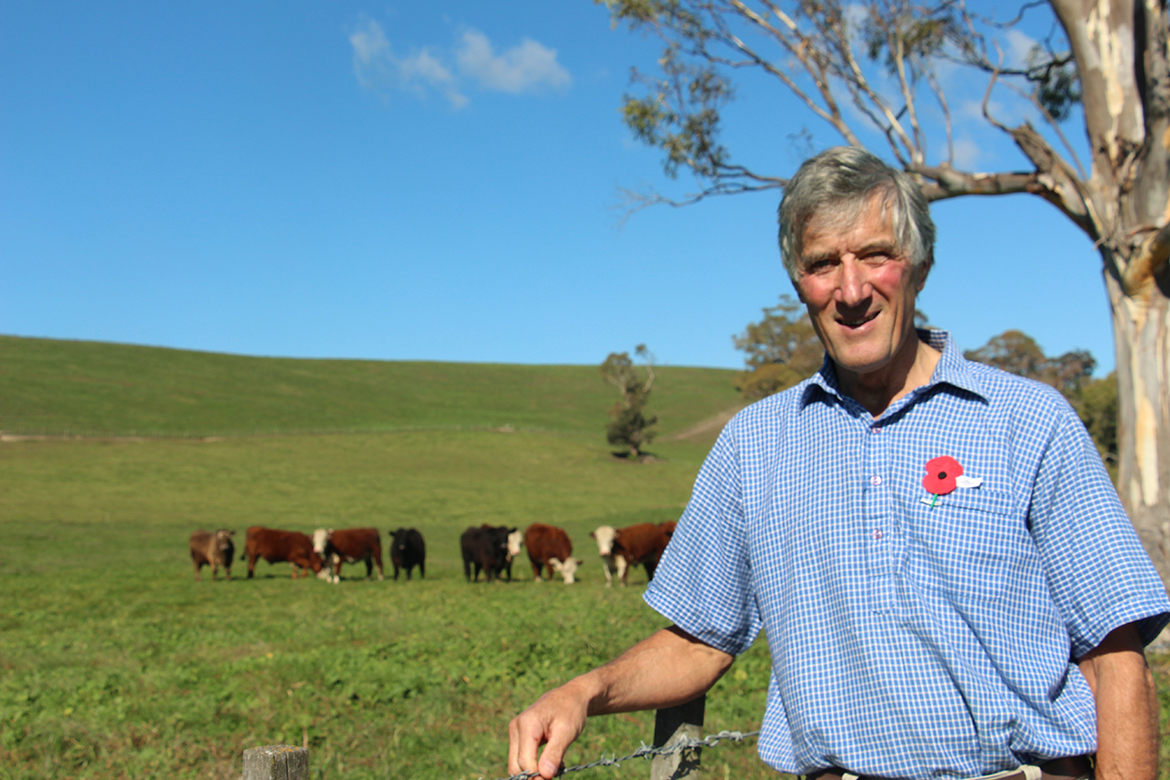“Stay focused on your direction, and don’t get too hung up on specifics,” is the advice one of Hawke’s Bay’s most experienced farming leaders has for the future generation when goal setting.
Sam Robinson, who is this year’s recipient of the Laurie Dowling Memorial Award for services to agriculture, is now spending more of his time mentoring and sharing his experience as a company director and chairman, of both private and public cooperatives and investor-owned entities.
As a young farmer, Sam says he can remember putting down some goals – have 5,000 sheep, 200 cows and to be on the New Zealand Meat Board. While he never made it onto the meat board, Sam, says doing this simple exercise made him realise where he wanted to head.
“Opportunities are never obvious, and when you do spot them, there is always risk attached. If you do see an opportunity, back yourself and have a go.”
Sam freely admits to being “one of those” from the PMS (pale, male and stale) club, but says for him, diversity is more than the result of genetics; it is also from how you think.
He’s always taken a long-term view of life, both on his farm and in governance.
He’s put an emphasis on making his Flemington farming business resilient both economically and environmentally. Of the 1,030 Hectares of land he and his family own, only 830 hectares are in pastoral use, and even that has a good covering of willow and poplar plantings, and at last count there are about 18Km of shelter belts on the farm. The remaining 200 hectares are made up of approximately 75 hectare of production forestry, and the balance is retired. Recently he entered a sharefarming equity partnership with young farmer Jason Wyn-Harris on the property.
Similarly, with a business such as AgResearch, which he chaired for nine years, Sam says there can be up to 15 years between deep discovery type research to commercialisation.
The Ruataniwha Water Storage Scheme he says was also about a long-term view of what improvements are possible for both the Hawke’s Bay economy and environment.
A fundamental strength and opportunity for both New Zealand and Hawke’s Bay is food production.
“Food needs three things to grow. Hawke’s Bay has an abundance of soil and sun, and the third – water – can be provided as irrigation, which is only precision rainfall.
“If we look at the Heretaunga Plains, they were once predominantly pastoral, including a good proportion of dairy farming. In 1935 Sir James Wattie built a food processing plant. By the 1960s there were significant areas of peas and beans as well as apples and pears, and today we’re growing squash, new varieties of apples and other high value crops.”
In 80 years the Heretaunga Plains have gone from basic to sophistication in food production.
“When I think about the transformational opportunities for the Ruataniwha Plains we can do the same.”
He accepts that “at this stage” the RWSS has some significant challenges to be overcome if it is to eventuate. However, he is hopeful that “in time there will be another discussion about the merits and risks of the RWSS and the true potential of the Ruantaniwha Basin Plain can be realised for Hawke’s Bay, all the way from the paddock to the port”.
In accepting the award, Sam paid tribute to the late Laurie Dowling, for his self-less commitment to both agriculture and the community.
“Laurie always had time for people.”



